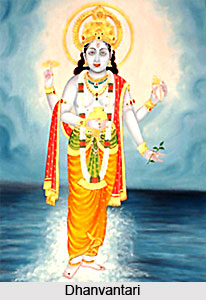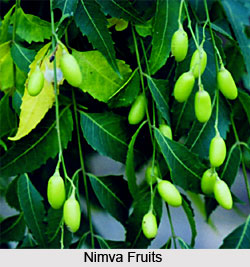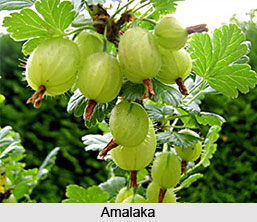 Lord Agni has dealt with a system of medicine in Agni Purana as narrated by the holy Dhanvantari to his disciple Sushruta. The medicines narrated by Dhanvantari has the remedies that is potent enough to bring the dead again to life. In this particular chapter of Agni Puruna Sushruta has asked Dhanvantari to give him the details of incantations and medicinal remedies which are infallible in curing maladies, familiar to men, horses and elephants, and those remedial measures also which act as elixirs of life and are possessed of virtue of reviving lost vitality, or of bringing the dead attain to life.
Lord Agni has dealt with a system of medicine in Agni Purana as narrated by the holy Dhanvantari to his disciple Sushruta. The medicines narrated by Dhanvantari has the remedies that is potent enough to bring the dead again to life. In this particular chapter of Agni Puruna Sushruta has asked Dhanvantari to give him the details of incantations and medicinal remedies which are infallible in curing maladies, familiar to men, horses and elephants, and those remedial measures also which act as elixirs of life and are possessed of virtue of reviving lost vitality, or of bringing the dead attain to life.
In Agni Purana Dhanvantari has said a physician, attending a patient up with fever and fasting in consequence, should prescribe for him such innocuous diet, as Manda of fried paddy and boiled mixture, so as to keep up his strength. Boiled water alone is also sufficient in many cases. It has been said that at the subsidence of symptoms which the peculiar deranged humour which had brought the paroxysm, the physician should cause the proper application of oil to be rubbed over the body of the patient.
In a case of internal haemorrhage (such as Haemoptysis or Hasmatemesis) emetics should be prescribed, where the seat of the complaint would be situated above the region of the waist; whereas purgatives should be prescribed where the seat of the disease would be anywhere below that line. A potion composed of the drugs known as the Sadangas with the exception of Shunti, may be given for internal use as well, and the patient should live on a diet composed of powdered barley, wheat, fried paddy, barley, Shali rice, Masura pulse, Muga, and Chanaka treated with the drug Kustha.
The adhyaya in Agni Purana narrates that small grapes dressed in milk and clarified butter, as well as Vrishorasa mixed with honey, are safe cures for cases` of chronic dysentry, in which grains of old and matured Shali rice, should form the staple food of the patient. A man, suffering from any of the intestinal Rumours, should carefully avoid wet, though boiled rice, as well as articles that vitiate the vital wind.
 His food should be composed of hot and boiled rice, mixed with the decoctions of Lodhra-bark. Likewise a man suffering from any sort of abdominal dropsy, should eat Vatya with thickened milk, or Vastuka fried in clarified butter, the diet for such a person being rice boiled of Shali paddy and preparations of wheat and barley in general, and such articles as wheat, Shali` rice, Mudga pulse, and Bramharaksha, Catechu, the Nimva fruits, Dhatri and Nutmeg. Patola, juice of Matulanga, lime, Jati-fruits, dried radishes and Saindhava salt, should largely enter into the composition of food intended for a leper, while his drink should consist of the washings of Catechu. Likewise a leper should largely drink of a potion containing the washings of Mudga, or Masura pulse, or such nutritious beverage, as essence of meat with the juice of Nimva and Parpata herb. Similarly it has been said that a decoction of the drugs, known as the Dasha Mula and Rasna boiled with Kulattha, should be administered in a case of hiccough or difficult breathing.
His food should be composed of hot and boiled rice, mixed with the decoctions of Lodhra-bark. Likewise a man suffering from any sort of abdominal dropsy, should eat Vatya with thickened milk, or Vastuka fried in clarified butter, the diet for such a person being rice boiled of Shali paddy and preparations of wheat and barley in general, and such articles as wheat, Shali` rice, Mudga pulse, and Bramharaksha, Catechu, the Nimva fruits, Dhatri and Nutmeg. Patola, juice of Matulanga, lime, Jati-fruits, dried radishes and Saindhava salt, should largely enter into the composition of food intended for a leper, while his drink should consist of the washings of Catechu. Likewise a leper should largely drink of a potion containing the washings of Mudga, or Masura pulse, or such nutritious beverage, as essence of meat with the juice of Nimva and Parpata herb. Similarly it has been said that a decoction of the drugs, known as the Dasha Mula and Rasna boiled with Kulattha, should be administered in a case of hiccough or difficult breathing.
Purgatives should be given to patients suffering from diseases of the heart, while preparations of Pipul should be administered to those who are afflicted with hiccough, through the medicine of cold water and washings of whey. In diseases which are the outcome of an excess of wine, wine mixed with Souvarcha salt, should be given in small, but repeated, doses. A man, suffering from an ulcer, should take milk containing honey and washings of shellac. A man suffering from any sort of wasting diseases, should take special care to improve his appetite, and take essence of meat every day, whereby he would get rid of his malady. The diet in such a case should consist of Shali rice, seeds of Nivara and such like light-food at the beginning.
Dhanvantari in Agni Purana has said that a similar diet should be observed by a patient suffering from piles, and washings of whey should be substituted for his ordinary drink. The patient should take decoction of Musta every day, and plaster the polypus over with a paste of Haridra (turmeric) and Chitraka, while the diet should largely consist of preparations of barley, Shali rice, and Souvarcha salt. Thickened milk mixed with clarified butter and juice of Sugarcane and Esvaru, should be given in the case of a renal stricture, while Mandas containing mild wines may be given as drink. Fried paddy, powdered barley, honey, meat roasted on a stick, brinjal, gourd, Shikhi, and wine are anti-phlegmatic in their effect, and are good medicines for an attack of simple cold. Boiled rice made of Shali paddy, or a mixture of milk and water made lukewarm, or boiled, should be deemed as the best allayer of thirst, while a pill made of treacle and pasted Musta kept in the mouth, would produce the same effect.

Cakes made of barley, together with dried radishes, pot-herbs, and seeds of common canes, should form the diet of a man afflicted with an abscess on his femoral region. A man suffering from Erysipelus, should live on a diet composed of Mudga, Adaka; Masura, prepared from the juice of lemon juice, Saindhava salt, clarified butter, juice grapes, Shunthi, Amalaka, Kolaja, old wheat, barley, refined sugar, small grapes, and pomegranates.
According to the medicinal remedies of Dhanvantari a man seeking a long life, should take a mixture of honey and clarified butter every night. Similarly thickened milk and clarified butter, boiled with the juice of Shatavari, are known to act as a strong elixir of vitality. Similarly Kalamvikas and Masas taken with thickened milk and clarified butter; act as a potent nerve-tonic. The same drugs used with the juice of Madhuka, bring vigour to an used up frame and arrest premature old age, and vouchsafe a complete cure of all senile decay. Oil prepared with Rasna and Sahachara is beneficial to persons suffering from a fever, due to deranged condition of the vital wind. Cold food should be carefully avoided by a person suffering from an abscess, while his diet should consist of articles that do not give rise to excessive phlegm by their chemical reaction.
It has also been said that powdered roots of Tanduleya, administered through the medium of clarified butter, should be deemed as an effective remedy for bites of spiders and poisonous insects. Even cases of snake bites had been successfully treated with the above said potion, and the most virulent snake-poison had been known to have been entirely eliminated from the system, by means thereof. A paste composed of Sandal,` Padmaka, Kustha, Satamvu, Ushira, Patola, Nirgunthi, and Shuriva, is a potent remedy for all sorts of insect-bites.



















